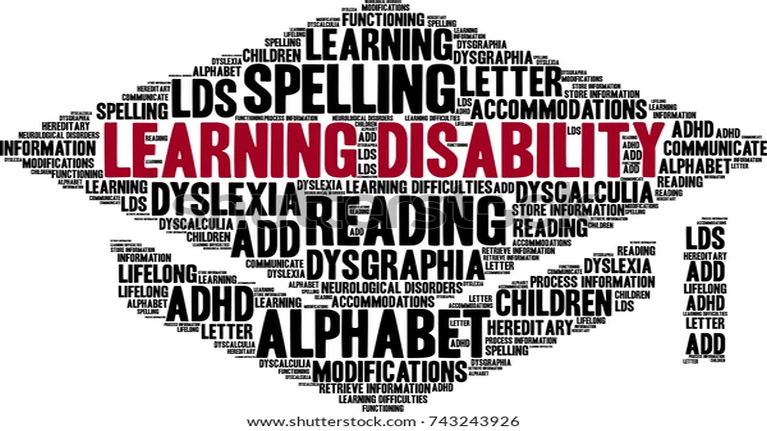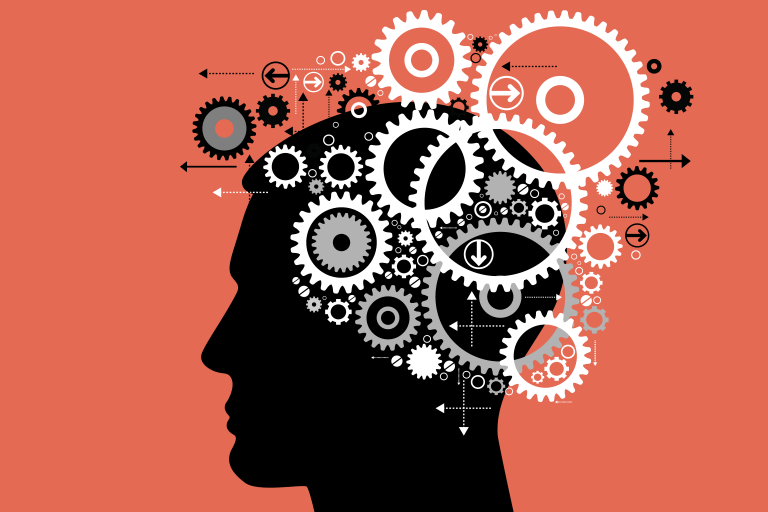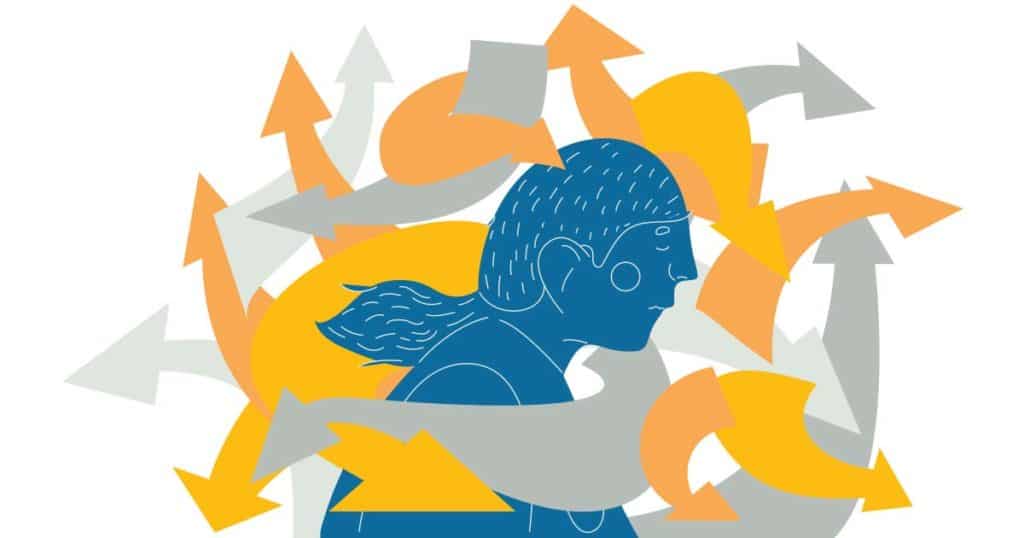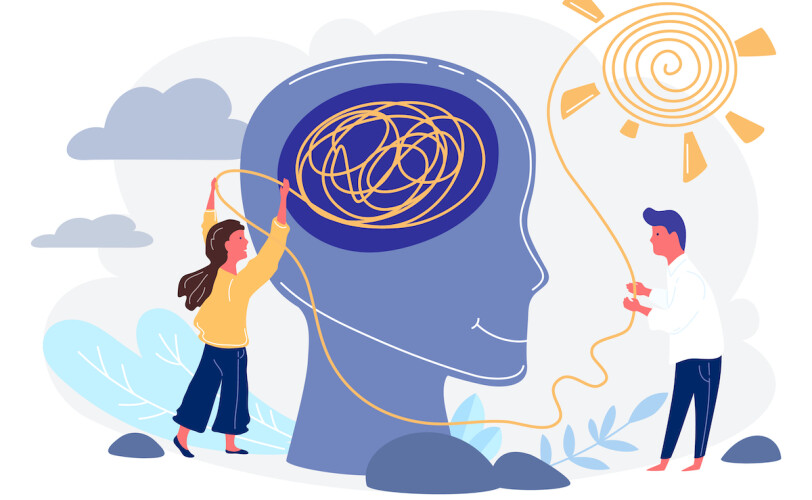
“Attention deficit/hyperactivity disorder (ADHD) isn’t a learning disability – but it can impact how you learn new information.
The key is understanding how ADHD affects your learning process. This enables you to seek the support you need to manage symptoms and find strategies to help you succeed!
So having ADHD is not a life sentence for bad grades or poor work performance. You can still achieve your career or academic goals with proper treatment and structures.
ADHD is not classified as a learning disorder because it doesn’t impact specific academic skills. Keep in mind that ADHD affects people differently.” [1]
It is possible to have ADHD alone, a learning disability without ADHD, or both.

What are a Learning Disabilities?
“A Learning Disability, or LD, is a neurodevelopmental or brain-based disorder that affects people with average or higher intelligence. An LD should not be mistaken for an intellectual disability. Young people with LDs are just as smart as their peers but process information differently. It just means that the process of learning can take longer or the messages do not get to their destination in the brain in a manner that allows for quick neural processing.” [2]
“People with learning disabilities often have average or above average intelligence and yet there is a discrepancy between their achievements and their potential. However, with the right support and interventions, they are able to close that gap and demonstrate their skills.
Examples of Learning Disabilities
- Dyslexia: Reading disorder
- Dyscalculia: Math disorder
- Dysgraphia: Writing disorder
- Dyspraxia: Problems with motor skills
- Dysphasia/Aphasia: Problems with language
- Auditory processing disorder
- Visual processing disorder” [3]
“The most common treatment for learning disabilities is special education. Specially trained teachers may perform a formal assessment to understand the child’s academic and intellectual potential. They will also look at the level of academic performance. Once the evaluation is complete, the basic approach is to teach learning skills by building on the child’s abilities and strengths while correcting disabilities and weaknesses. Other professionals such as speech and language therapists also may help. Some medications may help the child learn by enhancing attention and concentration. Psychological therapies may also be used.”

What is ADHD?
“Attention-deficit/hyperactivity disorder (ADHD) is marked by an ongoing pattern of inattention and/or hyperactivity-impulsivity that interferes with functioning or development. People with ADHD experience an ongoing pattern of the following types of symptoms:
- Inattention means a person may have difficulty staying on task, sustaining focus, and staying organized, and these problems are not due to defiance or lack of comprehension.
- Hyperactivity means a person may seem to move about constantly, including in situations when it is not appropriate, or excessively fidgets, taps, or talks. In adults, hyperactivity may mean extreme restlessness or talking too much.
- Impulsivity means a person may act without thinking or have difficulty with self-control. Impulsivity could also include a desire for immediate rewards or the inability to delay gratification. An impulsive person may interrupt others or make important decisions without considering long-term consequences.”[4]

ADHD in Adults
“ADHD can last into adulthood. Some adults have ADHD but have never been diagnosed. The symptoms can cause difficulty at work, at home, or with relationships. Symptoms may look different at older ages, for example, hyperactivity may appear as extreme restlessness. Symptoms can become more severe when the demands of adulthood increase.” [5]
Causes of ADHD
“Scientists are studying cause(s) and risk factors in an effort to find better ways to manage and reduce the chances of a person having ADHD. The cause(s) and risk factors for ADHD are unknown, but current research shows that genetics plays an important role. Recent studies link genetic factors with ADHD.1” [5]
ADHD and LDs are Not the Same
“So, what’s the difference between ADHD and an LD? An LD makes it difficult to acquire specific skills such as reading skills or math skills. By contrast, ADHD impacts more global skills and executive functions like the ability to focus, the ability to control emotions, and the ability to control impulsive behaviour.
Since learning requires the use of executive functions (especially the ability to focus, pay attention, engage in tasks, and use working memory), it can look a lot like ADHD when a child is struggling with an LD. It is easy to confuse ADHD and LDs as being the same thing. The characteristics of an LD though, affect one or more specific cognitive processes including executive functions.” [2]

When ADHD and learning disorders co-occur
“Because both ADHD and learning disorders are neurodevelopmental disorders, it is not surprising that they may often co-occur. Various research studies have calculated the prevalence of such co-occurrence at 30 percent to 50 percent. What is the impact of this double whammy? The association between ADHD and achievement difficulties is driven more by inattentive than hyperactive-impulsive symptoms, deficits in working memory and processing speed are shared across ADHD and LDs, multiple genes seem involved in the etiology of both ADHD and reading disabilities, and neither cognitive nor behavioral constructs fully account for the relationship between ADHD and LDs.”
How to manage ADHD and learning disabilities
Some routine treatment methods include:
Prescription medications
- Cognitive behavioral therapy (CBT)
- Extra assistance (tutors, speech pathologists, etc.)
- Special education, or individualized education programs (IEP)
- Accommodations for school
Neither ADHD nor learning disabilities can be cured. However, that does not mean you or your child can’t have a successful and happy life. There are many successful ADHDers with learning disabilities.
Find Resources for success.

Resources
[3] https://www.verywellmind.com/is-adhd-a-learning-disability-4116126
[4] https://www.nimh.nih.gov/health/topics/attention-deficit-hyperactivity-disorder-adhd
[5] https://www.cdc.gov/ncbddd/adhd/facts.html
[7] https://chadd.org/adhd-weekly/adhd-learning-disability-it-may-be-both/
